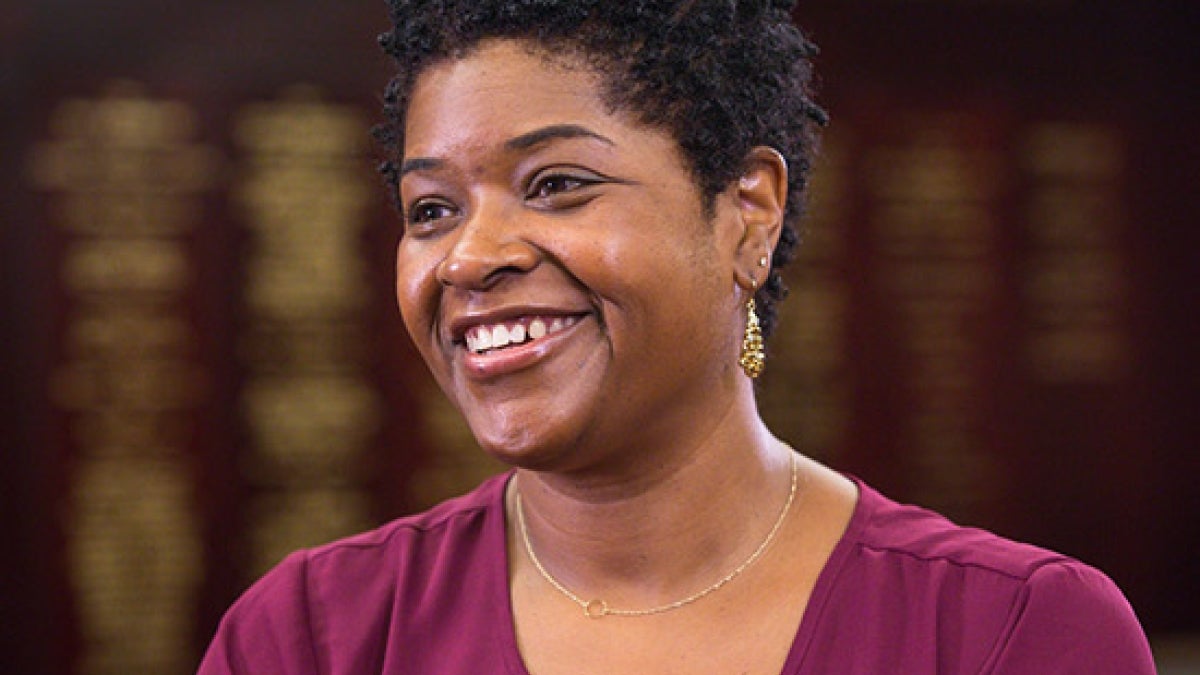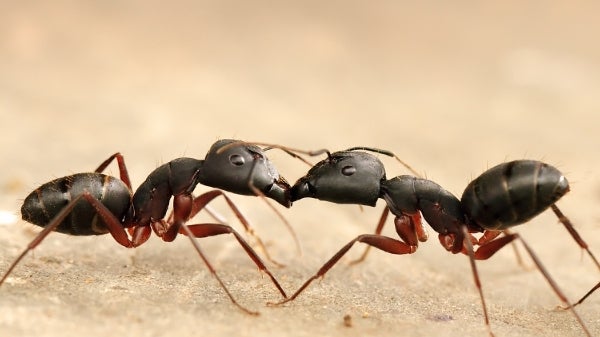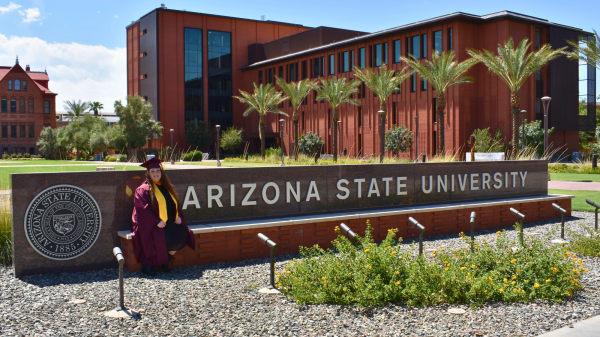Garner Smith's game plan: To protect, mentor ASU's student-athletes

Deana Garner Smith, ASU senior associate athletics director and senior administrator for women’s athletics, has more than 15 years' experience at both collegiate and professional levels, with the NCAA and recently the NFL. She joined ASU in June.
Photo by: Charlie Leight/ASU News
Professional football players may appear physically invincible, but when Deana Garner Smith worked with these athletes she saw them as vulnerable.
As the director of security and player engagement for the National Football League, it was Garner Smith’s job to help protect the athletes from people who would exploit them. She ran background checks on nannies and gardeners and tried to teach the men how to navigate life in the limelight.
Now at Arizona State University as senior associate athletic director, Garner Smith’s message to the young adults is the same:
“They must clearly understand: You have a right to be safe and have no one harm you.”
Garner Smith, who started at ASU in June, is also senior administrator for women’s athletics. She says her position is especially suited to imparting wisdom to the young people she is nurturing.
“I’m not a teacher. I’m not a coach. I’m a mentor,” she said.
It’s her job to make sure the athletes get the help they need to balance their lives, perform at their peak and – most importantly – earn a degree.
“I was looking for words of wisdom to put on my office wall,” she said, “and my favorite was ‘Stay calm and graduate.’ ”
She was brought to ASU by Ray Anderson, vice president for athletics. They had worked at the NFL together.
Anderson said he hired her based on her extensive background in athletics administration.
“Deana's skill set is outstanding,” Anderson said. “Her background of being a prosecuting attorney, 10 years of work with NCAA compliance matters and student-athlete welfare and nearly seven years in the NFL is tremendous. Her work with various programs around such topics as domestic-violence awareness is invaluable.”
He added that Garner Smith is charming and special.
She’s also tough.
He said that once during a Pro Bowl, Garner Smith was nursing an injury and he decided she should move from her spot on the field and work in the press box.
She wanted to remain on the field, with the athletes.
Deana Garner Smith from Arizona State University on Vimeo.
Talk about the issues
Garner Smith came to the world of athletics through books, not balls.
“I played club soccer and softball, but I was not very good,” she said. “I was kind of a nerd. I was on the academic side.”
After earning a law degree at Indiana University, Garner Smith was a deputy prosecutor in the Marion County prosecutor’s office in Indianapolis, specializing in domestic violence. There, she witnessed a lot of terrible situations and saw the importance of intervention. She started to formulate the approach she has brought to ASU – talking about tough topics. In detail.
“You have to be proactive in talking with people, especially young people, about ways to stay safe, in particular young ladies,” Garner Smith said. “Because they may or may not have had conversations about healthy relationships, what a healthy relationship looks like and what an unhealthy relationship can end up being.
“How do you prevent it, and how do you extricate yourself from it?”
After leaving the prosecutor’s office, Garner Smith worked for the Indiana Gaming Commission and the National Collegiate Athletic Association. Through her decade of work at the NCAA, she formed partnerships with the professional leagues, and in 2008, she went to work for the NFL. There, she developed life-skills programs that players participated in during the off-season.
“We talked about relationships,” she said. “They would say, ‘I met this person and they told me they can help me get a car’ and then it would turn into some crazy scenario and we would try to dial it back and help them.
“They’re young. They’re in their early 20s when they get drafted. My job was to make sure, ‘If you have a problem, get help.’ ”
As part of her work with player education, Garner Smith tackled domestic-violence awareness. Last year, that thrust her into a firestorm of media attention. The NFL was scrambling to show it was serious about addressing a critical problem, highlighted by the release of a video showing former Baltimore Ravens player Ray Rice punching his then-fiancée.
“It’s not so comfortable,” she says of her time in the TV cameras’ glare.
Garner Smith faced rooms full of professional players and exhorted them to learn about domestic violence, sexual assault and child abuse in a presentation she took to all 32 teams.
Her time in the NFL was rewarding, but she came to ASU so she would have a chance to work with young athletes again.
“When you’re at a college campus, you get to see young people grow into adults,” she said. “When you’re at the pro level, you may see the few who are talented enough get to retire, but that’s an anomaly.”
Candid conversations
Garner Smith is candid with the students on the challenges they face.
“When we talk about going out, I ask what that looks like. Are you going in groups or do you go with one person? Are you drinking? Are you constantly tracking what’s going on with your beverage, making sure that if you leave your drink that you don’t go back to it because someone could have tampered with it.
“When you think about athletics, you think about people operating effectively as a team. So when you are socializing and you’re with a girlfriend or group of friends, you want to make sure you don’t leave anyone behind.”
She also tries to empower young people against sexual assault, telling them: “You have power through consent. But if you don’t know what consent means, you don’t know you have to give consent. And you don’t know you can say no.”
Deflecting social media is huge.
“A lot of times they don’t want to turn their phone off. It’s 24 hours and at some point you have to sleep and shut it down,” she said.
“Body image is a huge issue for men and women and we help them to understand it’s OK to be authentic, although they may not know what that means.”
Not all the interactions are so heavy. Garner Smith also tells the students to get enough sleep and how to de-stress with bubbles and coloring books.
With her nerd past, she especially loves circulating during study sessions in the Carson Student-Athlete Center.
“I’m not going to help them with chemistry or algebra, but I’m there to support them.”
More Sun Devil community

Army veteran dedicates PhD to exploring the social order of ant colonies
While Colin Lynch was enlisted as a medic in the National Guard, he had a pastime that was quite different from that of his peers…
College of Health Solutions grad, soccer star hopes to make the big leagues
A staple lineup defender on the Sun Devil women’s soccer team, Lauren Kirberg is looking to join the National Women’s Soccer…

ASU grad finds her calling in advocating for people through clinical research
Rhiannon Elliott-McGaugh-Mask grew up hundreds of miles away from an ocean, but that wasn’t an issue when deciding her future…